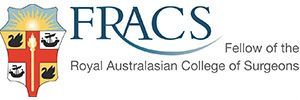Care Plan
Purpose of Weight Loss Surgery Care Plan
This Weight Loss Surgery Care Plan aims to guide you through your weight loss surgery. The decision to undergo weight loss surgery is a big and important step, but it is well worth it in the long run. We understand that this journey can be both transformational and challenging, and we aim to provide clear, accurate, and understandable information to help you achieve the best possible outcome. This care plan outlines the process of undergoing weight loss surgery and the care we provide afterwards.
Pre-operative Phase
- Initial Consultation:
- Once you have a referral from a GP, you will be scheduled for an appointment with one of our surgeons. We see all weight loss referrals within two weeks.
- Your surgeon will conduct a thorough medical assessment, including your overall health, coexisting medical conditions/medications, and psychological readiness for surgery. Your surgeon will assess your goals and help you develop an option that is a good fit. Our surgeons at Hunter Weight Loss offer all the approved weight loss operations and can suggest an option suited to your particular situation.
- Your surgeon will explain the various types of weight loss surgeries available, their risks, benefits, and expected outcomes. This is a great time to ask a lot of questions. We want you to understand your options fully.
- Your surgeon will discuss the risks and benefits with you and obtain informed consent. You will also be advised of the costs associated with your surgery.
- We don’t expect every patient to be ready to arrange surgery after just one consultation. You may need further work-up or investigations. We also want you to take the necessary time before committing. If you are ready, we can usually schedule your surgery within 4-8 weeks.
- Preoperative Preparation:
- We will arrange an appointment with our dietician to help guide you through the diet changes that are needed both before and after the operation. Most patients are given a specific diet to follow before the surgery to help shrink the liver. You will also be given instructions on the diet plan after surgery.
- Depending on your situation, a gastroscopy is usually performed. This is done at the hospital and used to check for any abnormalities of the stomach or oesophagus. Your surgeon will advise you whether this is needed in your particular circumstance. The surgeons at Hunter Weight Loss do not charge you anything for this procedure. However, there may be some fees from the hospital (your health insurance will cover these).
- You will also be assessed by one of our anaesthetists before surgery. This is to ensure you are in good shape before surgery. Occasionally, they request that you have some further tests performed before surgery.
- If needed, a referral for a psychologist or other healthcare providers will be made.
- You will receive a form for blood tests to check your nutritional status before surgery. These are the same tests that will be monitored in the future.
- If you are financing your surgery using superannuation or otherwise paying out-of-pocket, our finance team will contact you before your surgery date to ensure payment has been received.
Perioperative Phase
- Surgery Day:
- The hospital will provide instructions regarding fasting, medication, and arrival time.
- Your surgeon will see you before surgery to ensure everything is ready. We know you’ll be slightly nervous, and that’s ok! Ask all the questions you like.
- Post-operative Care:
- You will wake up in recovery. You will be monitored here to ensure everything is okay before being transferred to the ward.
- On the ward, the nurses will be there to look after you. Your surgeon will see you in the hospital as you recover. The majority of patients can go home the day following surgery. It is unusual to need to stay in the hospital for more than 2-3 nights.
- We will prescribe medications to control nausea or any pain. Pain is usually mild. Nausea varies between patients, from nothing to quite bothersome. It can be controlled with medications.
Post-operative Phase
- Diet and Nutrition:
- You will be given instructions on how to adjust to your new diet.
- Over six weeks, you will gradually transition from fluids to puree to a soft diet. Your portions will remain smaller.
- Physical Activity:
- We want you up and about as soon as you feel well enough. You will be given instructions about heavy lifting or strenuous activity. However, normal activities can be done immediately.
- Monitoring and Follow-up:
- You will have appointments for four weeks, three months, six months, and one year after your surgery. You can, of course, request additional appointments if you’d like.
- Appointments will also be made with the dietician to help you.
- We will check your vitamin levels at six and twelve months. If everything is stable, this will usually require monitoring annually after that.
- Long-Term Care:
- Including diet and exercise changes in your weight loss surgery is important to ensure you get the best result possible. Our dieticians are great resources for what foods and habits can help you reach your goals.
- Complications and Warning Signs
- Complications are uncommon with weight loss surgery; however, your surgeon will let you know what to look for in the unlikely event of a significant complication.






